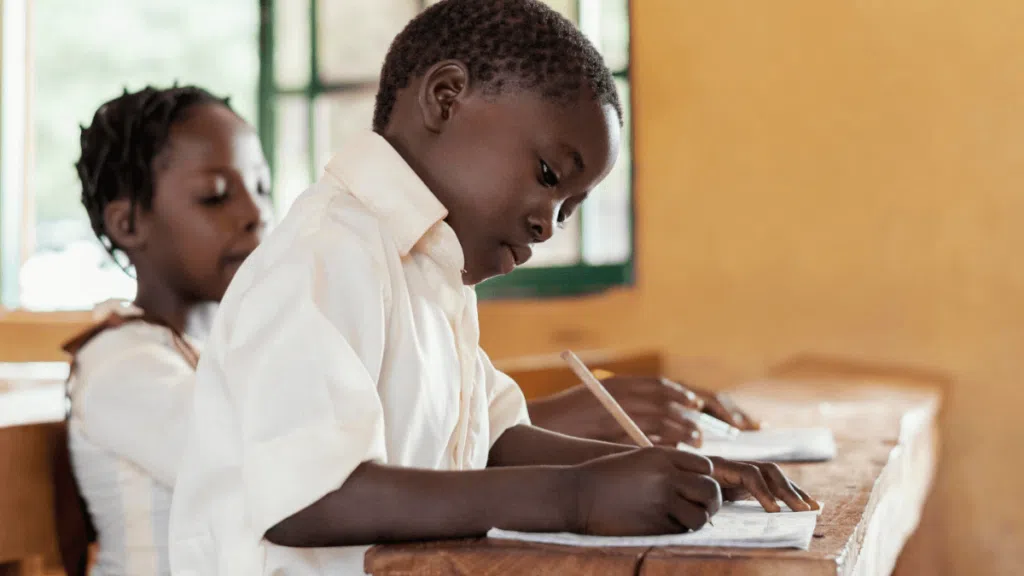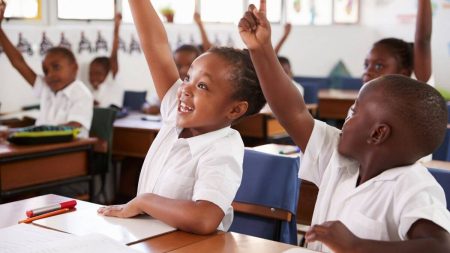The beginning of the 2025 academic year in Cape Town has been marked by significant challenges, as over 2,600 learners, comprising 400 Grade 1 learners and more than 2,200 Grade 8 learners, have yet to secure placement in schools. This issue highlights ongoing struggles in South Africa’s education system, particularly in resource-strapped communities.
Adding to these challenges is the looming reduction of 2,407 teaching posts across the Western Cape, a move that has sparked widespread concern from political parties, educators, and community groups. As calls grow louder for intervention from Basic Education Minister Siviwe Gwarube, parents and communities brace for the potential impact on the quality of education in the province.
A Persistent Problem in Learner Placement in Cape Town
The Western Cape Education Department (WCED) has confirmed that as of the start of the school year, 2,677 learners remain unplaced. WCED spokesperson Bronagh Hammond explained that late applications received as recently as December 2024 have contributed to the current placement shortfall.
Hammond said the department received a staggering 124,691 applications for Grade 1 and Grade 8 placements for the 2025 academic year. Despite their efforts to manage these numbers, the influx of late applications has proven challenging. “While the number of learners requiring placement has decreased since the beginning of December, we have received additional extremely late applications, which has made this a moving target,” she stated.
However, Hammond expressed optimism, noting that the WCED is in a better position compared to previous years. She assured parents that the department is actively engaging with schools to identify placement opportunities as staff return to work.
The Fallout of Teacher Reductions
The impending teacher cuts have compounded concerns about the education system’s capacity to meet learner needs. Political parties and community leaders have warned that these reductions will have devastating consequences for already disadvantaged areas.
Unequal Impact Across Communities
GOOD Party Secretary-General Brett Herron criticized the unequal burden placed on underprivileged areas, pointing to stark disparities in teacher losses:
- Khayelitsha: 142 teachers to be cut.
- Mitchells Plain: 176 teachers to be cut.
- Claremont: 9 teachers to be cut.
- Constantia: 3 teachers to be cut.
Herron argued that the cuts would exacerbate inequities, particularly for schools in under-resourced communities. “Reducing teaching staff will intensify overcrowded classrooms, limit subject offerings, and erode critical learner support, disproportionately affecting the most vulnerable students,” he said.
Barriers to Quality Education
ANC provincial spokesperson Khalid Sayed echoed these concerns, emphasizing the broader implications for learners in poor areas. He described the cuts as a “reckless” move that would deepen existing inequalities and jeopardize the future of many learners.
“Overcrowded classrooms and fewer opportunities will leave learners in poorer areas with little chance to compete with their peers from wealthier schools,” Sayed noted. He called on the Minister of Basic Education to intervene immediately to halt the cuts.
Community Protests and Demands
The Bishop Lavis Action Community (BLAC) has mobilized in response to the planned teacher cuts. They have announced a placard demonstration to protest the decision, citing its potential to cripple educational opportunities for working-class children.
Key Demands by BLAC
- Immediate reversal of teacher lay-offs.
- Increased investment in hiring more teachers.
- Reallocation of government expenditure towards education and health.
- Expansion of subject offerings, including Mathematics, Physical Sciences, Robotics, and Coding, up to Grade 12.
- Funding for innovative programs to support learners in underprivileged communities.
A Broader Challenge for Education in the Western Cape
Despite an improved matric pass rate of 86.6% in 2024, the Western Cape still falls short of the national average of 87.3%. This discrepancy reflects ongoing challenges in addressing inequality within the province’s education system.
“Learners from less affluent schools face the greatest barriers and the least resources,” Herron said, emphasizing the need for urgent reforms to ensure equitable access to quality education.
The teacher cuts, coupled with the high number of unplaced learners, risk derailing progress and widening the gap between well-resourced schools and their underprivileged counterparts.
Related: Ultimate Last-Minute Back to school Checklist for Parents in 2025
Government Accountability and Action Needed
As parents, educators, and community leaders await decisive action from the national and provincial governments, the 2025 school year begins under a cloud of uncertainty. The WCED’s commitment to resolving placement issues is a step in the right direction, but the systemic challenges facing the education sector demand a long-term strategy.
Political parties and advocacy groups have called for increased funding for education, a reversal of teacher reductions, and targeted interventions to support struggling schools. Without immediate action, the dream of equal educational opportunities for all South African learners will remain out of reach.










